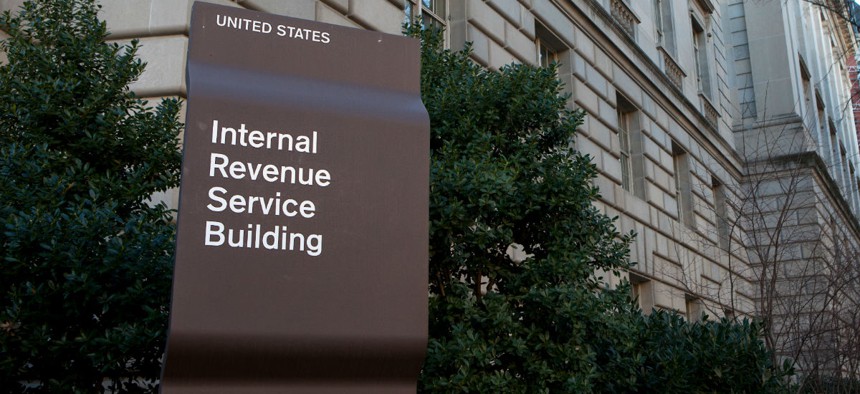
Mark Van Scyoc / Shutterstock.com
Union Leader Says He Has Good Relationship with IRS Chief
NTEU hopes to restore some of 18,000 lost tax agency jobs.
The employees union at the Internal Revenue Service enjoys solid communication with the agency’s commissioner, welcomes technological advances if appropriately applied and hopes to rebuild IRS’ shrunken workforce, according to National Treasury Employees Union National President Tony Reardon.
In a session with reporters on Tuesday during the 150,000-member union’s annual legislative conference in Washington, Reardon said Internal Revenue Commissioner John Koskinen has tried to be fairer to IRS employees. “He has the IRS’ best interest at heart,” Reardon said. “And he thinks highly of IRS employees, as he makes clear in the media when he goes to bat for them on Capitol Hill. I have a good working relationship with him, but let’s face it, he has an agency to run, and I lead a union. We don’t always see eye to eye. He works hard to run the agency well, but he has set of factors and data I don’t have.”
Reardon hears a lot about heavy workloads from IRS employees, he said, noting the 18,000 slots the agency has lost over the past five years. “It’s evident to me more employees are required,” he said. (IRS did win an infusion of $290 million in last fall’s budget deal, which allowed it to hire temporary employees for the 2016 filing season.)
Asked about the tax agency’s “Future State” plan to serve more taxpayers through online services, Reardon said, “NTEU recognizes that technology is a good thing and has no issue with technological advances. But if Future State becomes an opportunity for reducing taxpayers’ face-to-face time with the IRS, that’s a big problem.” Ongoing talks have reached no conclusion as to whether the push for greater automation means fewer employees, he added. Planning for such changes “does need to involve front-line employees,” and “the IRS could do better in pre-decisional involvement.”
On NTEU’s broader agenda of countering some lawmakers’ inclination to cut federal pay and benefits, Reardon said his members “express disbelief in the way they are treated by Congress.” For a new employee, a benefits package is a “pact that the employee is entitled to,” he said, “but Congress views it as a piggy bank.”
New hires shouldn’t have to pay more for retirement costs, he said, adding that rising health care premiums have prompted many members to tell him, “I can’t keep up.” Because of short staffing at Customs and Border Protection, he said, employees are working several 16-hour shifts a week, “which can’t be good for national security.”
NTEU fights for employee rights to collective bargaining and due process, Reardon said, not only because they’re merited, but because the threat of job loss and pay cuts “discourages whistleblowers,” which makes fair treatment of employees “a byproduct that is beneficial to American taxpayers.”
Congress may not be receptive to NTEU’s agenda during this election year. Legislative Director Maureen Gilman said House Oversight and Government Reform Chairman Jason Chaffetz, R-Utah, who spoke to NTEU last year, “takes the view that a lot of people do good work, but his priority seems to be going after the bad apples.” She noted that the rest of Chaffetz’s agenda is “similar to GOP talking points” on benefits cuts and curbing the size of the workforce. NTEU does draw some support, she said, from Northeast Republicans such as Reps. Peter King, R-N.Y.; Chris Smith, R-N.J.; and Frank LoBiondo, R-N.J.; and from Virginia lawmakers with many federal employees in their districts.
As for its own future health, NTEU is “focused on internal growth” at its 31 organized agencies, Reardon said. “There’s not a lot of hiring now, so I don’t conclude that [newcomers] don’t value or want to join a union.” Customs and Border Protection, which can’t hire older workers, has the highest hiring rate for young people, he said, “so I’m not sure they’re not” interested in a union. “It creates opportunities for NTEU, and opportunities to listen to them and possibly change the way we do business.”
Yes, declining nationwide union membership in the private sector are “discouraging,” Reardon said. “It’s important that we have a strong middle class and important that we have strong unions, too.”
(Image via Mark Van Scyoc / Shutterstock.com)







